Covid: What does Wales scrapping 2021 exams mean?
- Published

GCSEs, AS and A-level assessments will be done in classrooms in 2021 under teacher supervision
Exams in Wales have been scrapped for 2021 as students taking GCSE, AS and A-level qualifications will have their grades based on classroom assessments.
The Welsh Government made the call in a bid to mitigate the impact of the Covid-19 crisis on pupils who may have been affected by lockdown restrictions or if they've had to self-isolate.
Education Minister Kirsty Williams said head teachers would work on a "national approach" to ensure consistency.
But it has left some big questions.
So what do we know?
Well, there will be exams but not as we know them.
The Welsh Government says pupils will sit "assessed tasks" in a classroom setting under teacher supervision - but opposition parties and some unions say they are basically exams, just not in name because they will be externally set and marked by an exam board.
Ms Williams postponed exams in 2021 because she felt it was impossible to guarantee a level playing field for exams due to the ongoing impact of the coronavirus pandemic.
What will assessments be like?
The finer detail of what the assessments will look like and how they will be delivered will be discussed by an independent panel - made up of school and college leaders and supported by Welsh Government and Wales' qualifications regulator - who will report back in the new year.

In August, a fallout over A-level grades led to a U-turn by the Welsh Government
But what might give us a hint of what students will face is the recommendations exams regulator Qualifications Wales gave to the Welsh Government before they made their decision.
They advised different combinations of four types of assessments, external for GCSE, AS and A-level in either timetabled or non-timetabled exam conditions.
But there will likely be an optional element that schools can pick and choose the most appropriate assessments for students bearing in mind what topics they have managed to cover in the classroom.
When will assessments start?
Well, it's not too far off. The end of the spring term - after the February half-term - is the expected start date of the "first assessment activities".
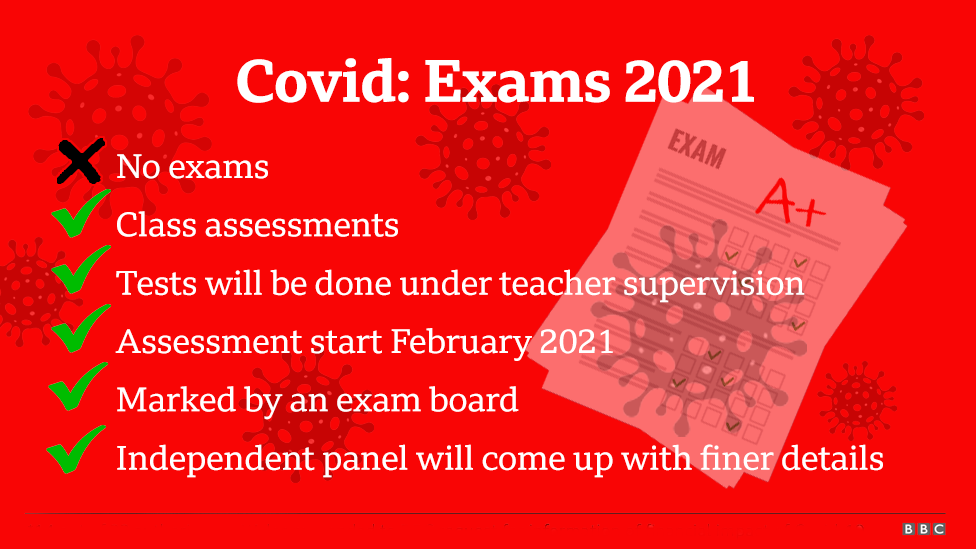
The minister said the cancellation of exams means schools can continue teaching "throughout the summer term".
What happens if students are self-isolating?
Ms Williams said teachers would have "flexibility" when it is best to undertake the the tests as national lockdown restrictions could be imposed if there's a coronavirus surge in Wales.
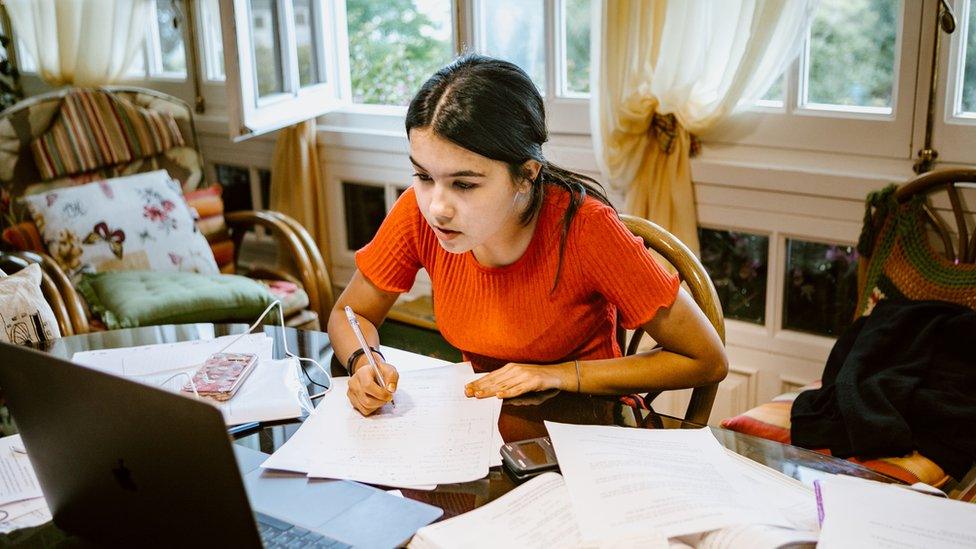
Schools have been told they can be "flexible" in case students have to self-isolate
This, it would seem, allows schools to be nimble if pupils are self-isolating or their learning has potentially been impacted by any quarantine restrictions, especially if classes or whole year groups have had to stay at home.
What are the pitfalls of this approach?
With some schools possibly doing their assessments before others, one of the big questions is how do you stop students sharing questions - and possible answers - with pupils from other schools?
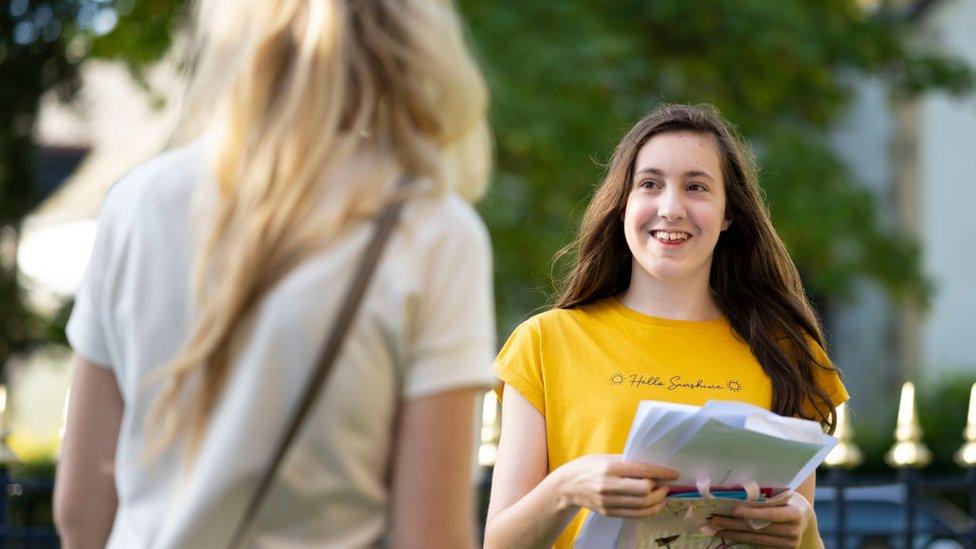
The independent review and Qualifications Wales have different recommendations on A-level exams
Qualifications Wales has acknowledge there is a risk but it is a risk worth taking as the need for flexibility to account for possible quarantine restrictions or school closures takes precedence.
Plus, assessments in different schools may be different, depending on what topics those students have managed to cover in the classroom.
Will universities recognise 2021 grades?
Well, here's the $64,000 question. The education minister told members of the Senedd that they will - and she made her decision in consultation with universities.
It is difficult to guarantee what individual universities will do but she said: "We have consulted with universities across the UK and they have confirmed that they are used to accepting many different types of qualifications."
What's the situation around the UK?
Well, it's unprecedented territory for universities as well as students and teachers as governments across the UK have all taken a slightly different approach.
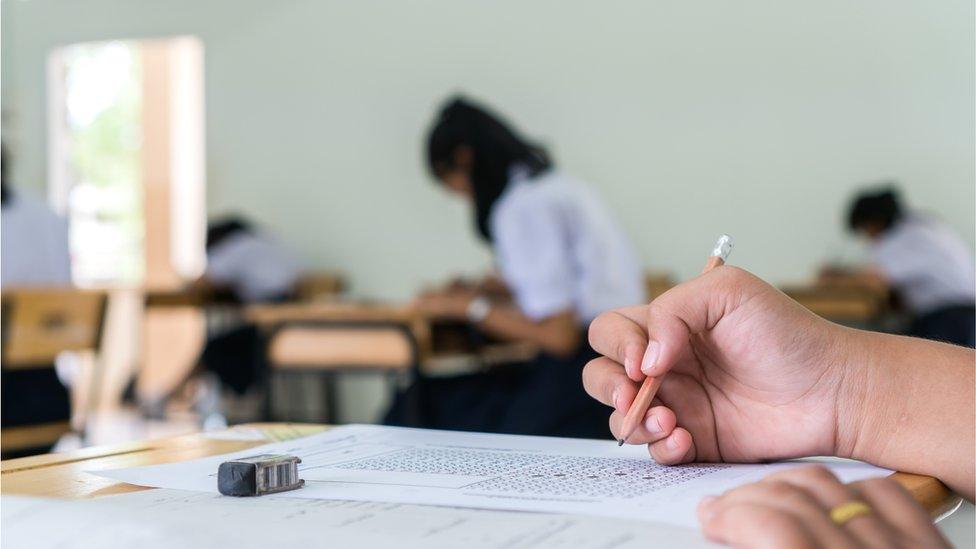
Assessments will be carried out in schools from late February 2021
In England, it seems unlikely that next year's exams will be completely cancelled but a final decision has not yet been made.
Scotland announced its plan for 2021 examinations last month, to cut the volume of tests in half by scrapping their GCSE equivalent but keeping their version of A-level exams.
In Northern Ireland, A-level, AS and GCSE exams will start one week later in 2021 but will still finish by 30 June.
What do the students think?
The reaction has been mixed as while some say the news has "released a lot of stress", others are concerned by what more assessments will do for the quality of learning.
Some pupils are happy with the news but others less so
Year 11 student Elin Chan says some of her fellow pupils at Glan Clwyd School in St Asaph, Denbighshire had been concerned.
"We've missed six months and teaching ourselves was a real struggle because it was just something new that no one knew how to deal with," said the 16-year-old GCSE pupil.

Elin Chan will be one of the students sitting her GCSEs in a different way this year
"We have never had an experience of sitting an exam that will determine our future."
Fellow Glan Clwyd pupil Elgan Jones, 14, said he worries what more testing will mean for the quality of learning.

Elgan Jones is worried what more testing might mean for students
"I think that it's fair in the aspect that we have lost a lot of school and people would be at an unfair advantage if they were off for numerous weeks because of Covid," he said.
"However, I do worry if the teachers will give us too many tests and we do not learn as much as we should be learning."
Leah Davies is "quite relived" exams have been cancelled because she has not sat one since the beginning of the pandemic.
But the 18-year-old A-level student at Glan Clwyd said it meant "the pressure is on continuously now for the rest of the year" as opposed to a "last push".
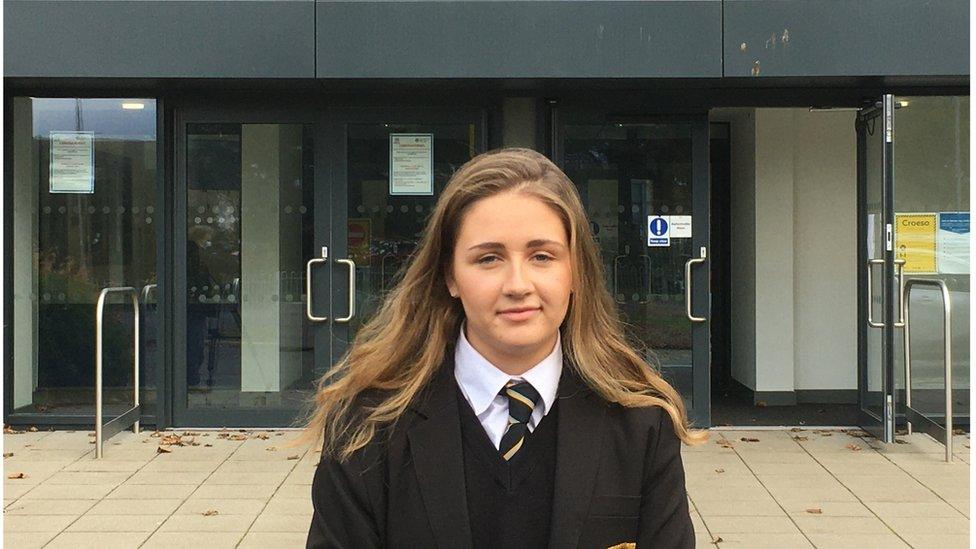
Leah Davies wants to study business and marketing at university next year
"It's not the pressure of exams but we still have to work and we are getting assessed roughly how we would if we sat an exam," said Leah.
"We still don't really know what is going to happen but we're just making sure we are working as hard as we can to get the grades we deserve."
What if I'm not studying A-Levels or GCSEs?
Well, the Welsh Government says the situation for vocational qualifications is "more complex" and will require "extra work".
The minister said government officials would work with regulators to ensure a "pragmatic approach that works in learners' interests" so it can "give them clarity about the way forward".

How students of vocational courses will be marked is still being discussed
In other words, a plan is being worked on so watch this space.
Is this going to happen beyond 2021?
Dream on kids! Seriously, though, as the coronavirus situation is moving so quickly it is hard to predict beyond the next month, let alone in 18 months.
With talks of a possible Covid-19 vaccine dominating the headlines, ministers will defer this decision to the next government after the 2021 Senedd elections as the political landscape and coronavirus situation could look so much different this time next year.
However, Wales' children's commissioner says this year's exam postponement could be a catalyst for a review of whether the exam system is fit for purpose.
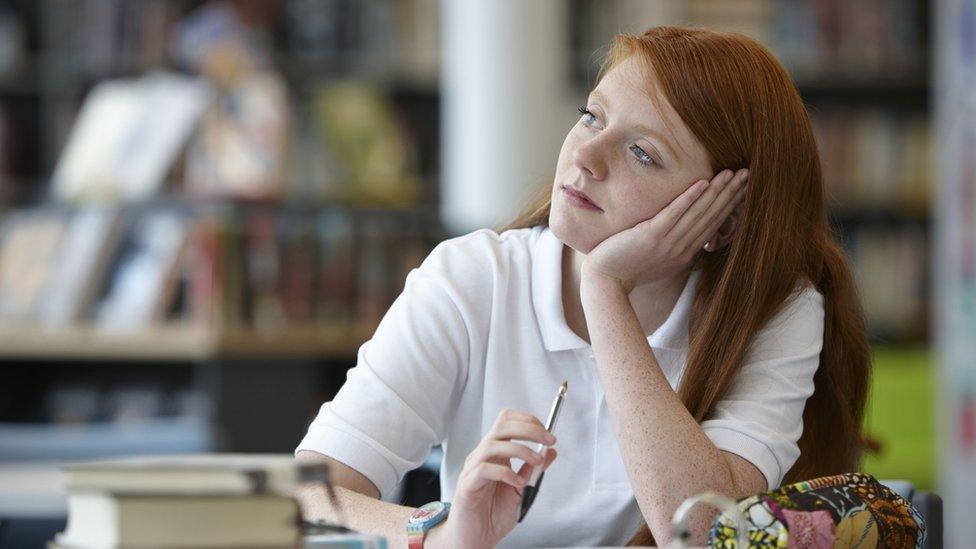
GCSE and A level students missed time in school over the summer and continue to face disruption
"We've highlighted to Welsh Government that the circumstances the pandemic has presented provide an opportunity for Wales to re-examine whether formal examinations are the fairest way to assess learners' skills, knowledge and achievements," said a spokesperson for the commissioner.
Sally Holland says she will hold "listening days" with groups of secondary school pupils from Year 9 to 13 next week about how the recent firebreak has impacted on them.
What politicians and teachers will be keen to avoid is any repeat of the uproar over exam results last summer when 42% of A-level pupils received standardised grades lower than teacher assessments.
- Published11 November 2020
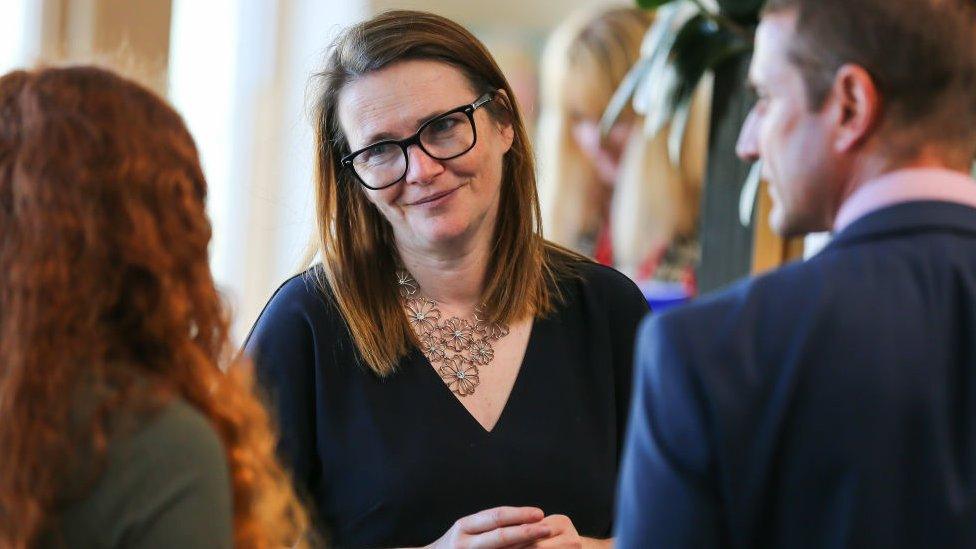
- Published10 November 2020

- Published10 November 2020
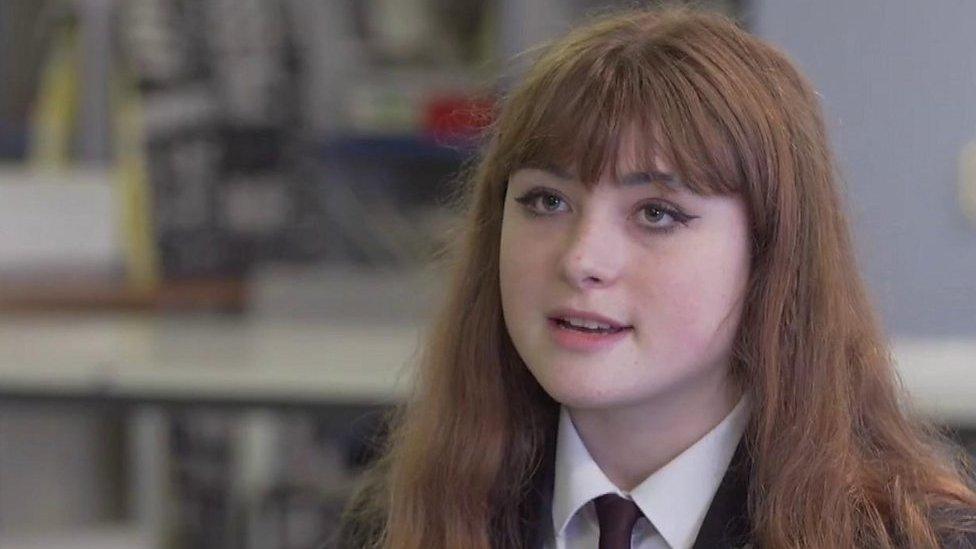
- Published10 November 2020
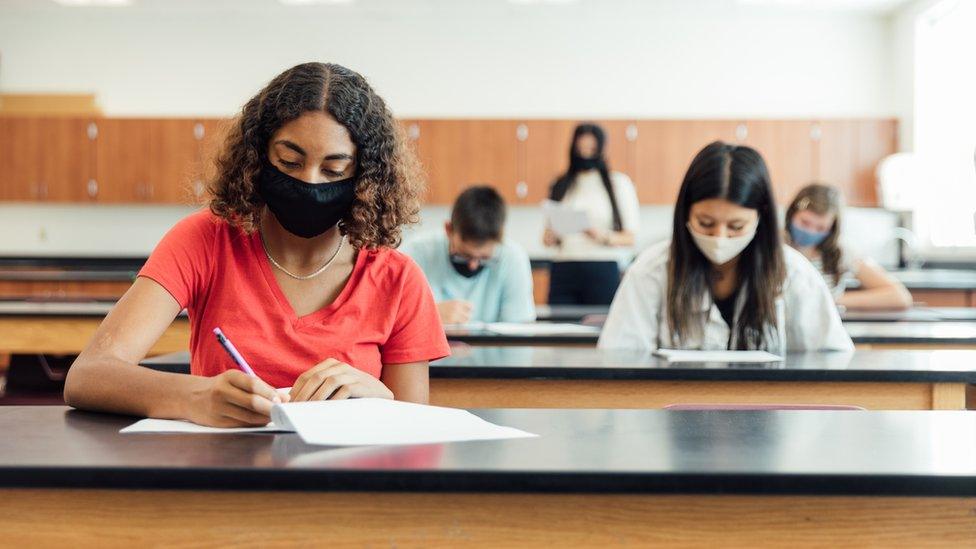
- Published8 November 2020

- Published5 November 2020
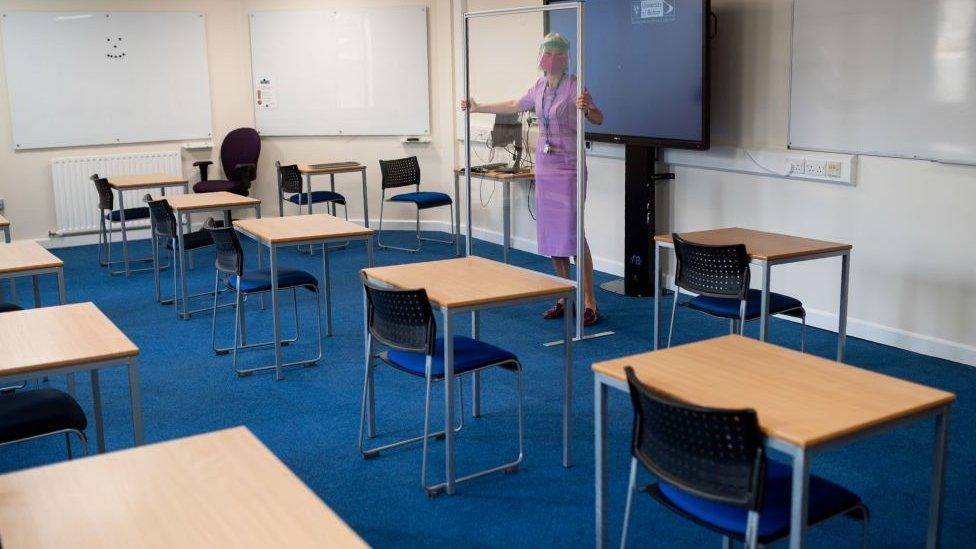
- Published29 October 2020

- Published13 October 2020
